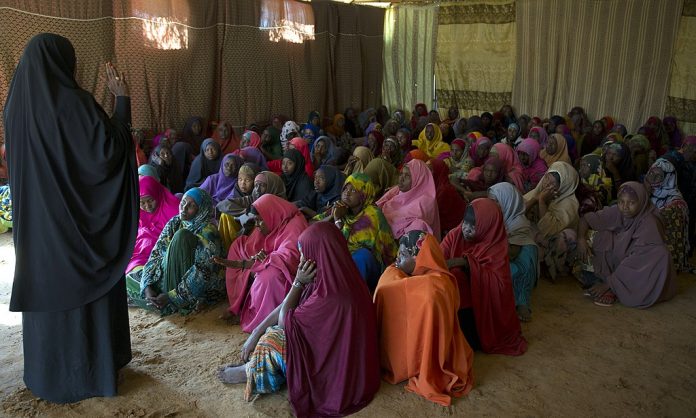At least 200 million girls and women in the world have suffered some form of genital mutilation according to the UN, and 68 million are still at risk. On the International Day of Zero Tolerance for Female Genital Mutilation, Socialists and Democrats in the European Parliament re-stated their strong commitment to eradicate this aberration.
S&D MEP Pier Antonio Panzeri, in cooperation with the NGO No Peace Without Justice (NPWJ), has organised an event with prominent African women who fight against FGM. Their coalition for action against FGM is reflected in a photographic exhibition [3] and web-documentary presented today in the European Parliament.
“We render public recognition to the courage of so many African women who have formed coalitions to fight against the cruelty of FGM. In the Parliament we want to give voice to those brave women who witness their experience of pain, but also their story determined rebellion against the patriarchal logic of FGM that violates the dignity of women,” said Pier Antonio Panzeri.
“It is shocking and heart-breaking to hear that girls aged 14 and younger represent 44 million of those who have been cut, with the highest prevalence of this young age in countries like Mali (73%), Gambia 56%, Mauritania 54% and Indonesia at 4%,” he added.
“The Istanbul Convention tackles all forms of violence against women including female genital mutilation (FGM). It is the first legally binding instrument in Europe which requires states parties to step-up preventive measures and to address the specific needs of women and girls who have undergone FGM,” said S&D MEP Christine Revault d’Allonnes-Bonnefoy, who is the S&D spokesperson on the Council of Europe convention on preventing and combating violence against women and domestic violence.
“I call on those member states which have not yet ratified the Istanbul Convention to do so without delay as well as to let the European Union ratifies it as well, in order to join efforts towards eliminating these barbaric practices. On the International Day, we must open our eyes to millions of victims who will suffer psychological and physical consequences their entire life. And it is an opportunity to remind ourselves that it not only happens in developing countries. We know that 180,000 women and girls in Europe are threatened every year,” she added.

